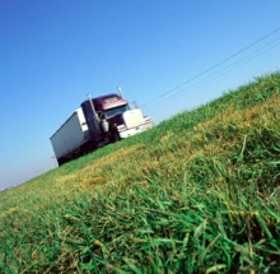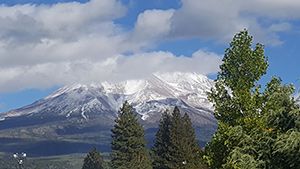Pre-trip Inspection Checklist For DMV Pre-trip Exam (please Proof Read)
Topic 15178 | Page 3

Hey thanks guys. I wasn't sure what to call the front of the trailer to be honest, the pre-trip book I got from school called it a bulkhead or header board. I thought header boards went on flatbeds so I went with bulkhead. As for the air brakes test, I copied that word for word out of the school's manual. According to my instructor the no brakes applied leak test was no longer required in the air brakes test. Let's see, did I miss anything else...
Yes, the tandem release arm, the marker lights and the oil pressure gauge time. Thanks guys, this helps a lot. I will be tested by the school on the pre-trip next week, so I have one week to get this down.
Bulkhead:
A strong wall-like structure placed at the front of a flatbed trailer (or on the rear of the tractor) used to protect the driver against shifting cargo during a front-end collision. May also refer to any separator within a dry or liquid trailer (also called a baffle for liquid trailers) used to partition the load.
Tandem:
Tandem Axles
A set of axles spaced close together, legally defined as more than 40 and less than 96 inches apart by the USDOT. Drivers tend to refer to the tandem axles on their trailer as just "tandems". You might hear a driver say, "I'm 400 pounds overweight on my tandems", referring to his trailer tandems, not his tractor tandems. Tractor tandems are generally just referred to as "drives" which is short for "drive axles".

Hmm, if your instructor says it's not required, then I guess don't worry about it, for now at least. But I would definitely keep the no brake leak test in mind, because DOT officers and scale house operators may require you to do this when you are pulled in for inspection.
DOT:
Department Of Transportation
A department of the federal executive branch responsible for the national highways and for railroad and airline safety. It also manages Amtrak, the national railroad system, and the Coast Guard.
State and Federal DOT Officers are responsible for commercial vehicle enforcement. "The truck police" you could call them.
Haha no worries. I thought maybe they taught you that way in school, but it didn't make any sense to me. So do you do your pretrip at the end of the day since you can't remember how to do it when you wake up?rofl-3.gif
You are actually supposed to DO a pre-trip? I thought we had to memorize that just to pass the TEST!


Haha no worries. I thought maybe they taught you that way in school, but it didn't make any sense to me. So do you do your pretrip at the end of the day since you can't remember how to do it when you wake up?rofl-3.gif
You are actually supposed to DO a pre-trip? I thought we had to memorize that just to pass the TEST!
Touché!!

Problems I read don't use damaged as a description. Glass, not broken cracked or missing. Metal not bent broken or missing nuts and bolts. Rubber no abrasion bulges or cuts. Any items with air or liquid not leaking. I'll be on campus Thursday, try to find you.

Hey thanks, I tested it out today, this weekend I am going to be making some significant changes to it I will keep your suggestions mind. To find me it will be easy, I am a tall skinny blond guy with black jeans on, a brown student shirt and sometimes a floppy brimmed hat on. I am in Towner's class, ask him is you can't find me. I would love to meet you.
Problems I read don't use damaged as a description. Glass, not broken cracked or missing. Metal not bent broken or missing nuts and bolts. Rubber no abrasion bulges or cuts. Any items with air or liquid not leaking. I'll be on campus Thursday, try to find you.
New Reply:
New! Check out our help videos for a better understanding of our forum features

















Preview:
This topic has the following tags:
Pre-trip inspection (PTI)







 TT On Facebook
TT On Facebook
Ok makes sense, that's what I figured. Just never heard it called that before. Thanks
Bulkhead:
A strong wall-like structure placed at the front of a flatbed trailer (or on the rear of the tractor) used to protect the driver against shifting cargo during a front-end collision. May also refer to any separator within a dry or liquid trailer (also called a baffle for liquid trailers) used to partition the load.